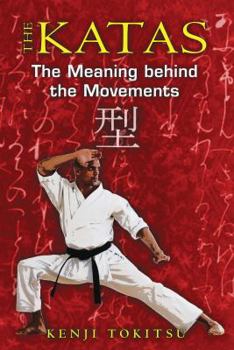The Katas: The Meaning Behind the Movements
Select Format
Select Condition 
Book Overview
The embodiment of the ancient knowledge that underlies the dedication-to-perfection philosophy of Japan * How mastering these specific movement sequences known as katas provides a way to deepen one's martial arts practice spiritually * Explores the psychological and social importance of the katas in martial arts and Japanese society, including their role in seppuku (ritual suicide) * Includes many examples from the lives of famous masters, from the legendary samurai Miyamoto Musashi to 20th-century poet Yukio Mishima An essential part of the martial arts of Japan, such as sumo and karate, the katas are specific sequences of movement that originated during Sakoku, Japan's period of closure to the outside world from 1633 until 1853. The dedication-to-perfection philosophy of the katas, ubiquitous in Japanese society, is vital to understanding the spiritual aspects of their martial arts as well as other traditional Japanese arts, such as flower arranging, chado (tea ceremonies), and kabuki theater. With examples from the lives of famous masters, from legendary samurai Miyamoto Musashi to 20th-century poet Yukio Mishima, this book explores the psychological and social importance of the katas, including their role in seppuku (ritual suicide), the student-master relationship, and gyo (the point at which the practitioner breaks the mold of the kata and begins to embody it). Looking at their origins in the warrior class and how this pursuit of perfection is ultimately a way to accept the power of death, the author explains how performing the katas transmits ancient knowledge much deeper than just technical movements, providing a way to deepen one's martial arts practice spiritually.
Format:Paperback
Language:English
ISBN:1594773483
ISBN13:9781594773488
Release Date:September 2010
Publisher:Inner Traditions International
Length:192 Pages
Weight:0.70 lbs.
Dimensions:0.5" x 6.1" x 8.9"
Customer Reviews
0 rating





